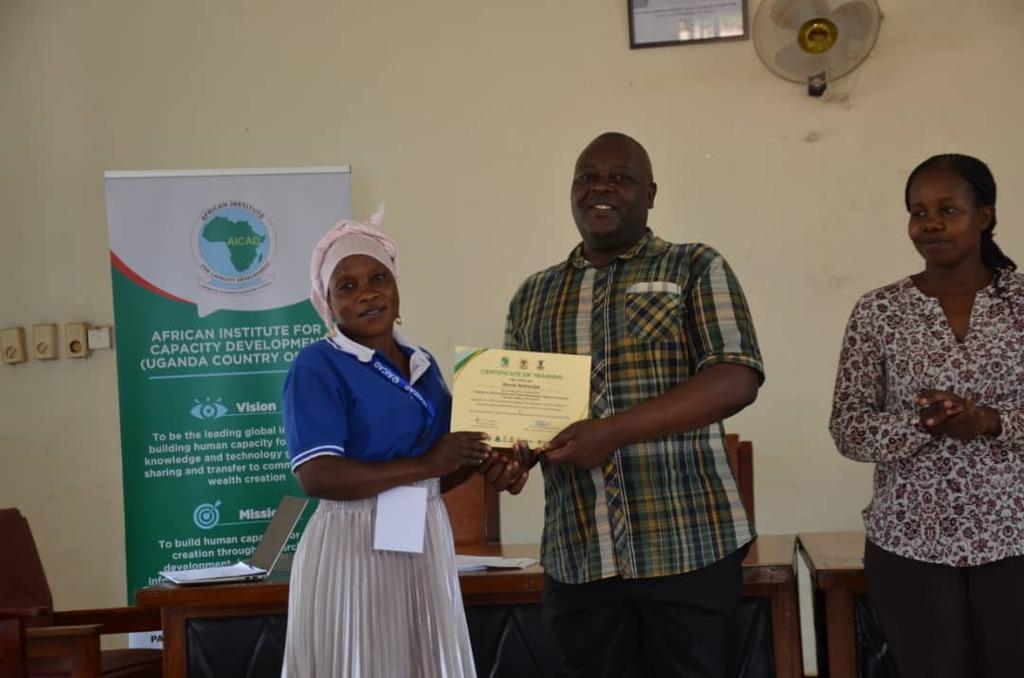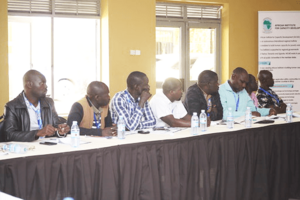The African Institute for Capacity Development (AICAD) has launched an ambitious training program titled “Dissemination and Commercialization of Improved Soybean Varieties (MAKSOY 3N and 6N)” aimed at boosting soybean productivity, income generation, and export competitiveness among farmers in Uganda. The initiative, scheduled for September 2025 in Luwero District, falls under AICAD’s Knowledge and Technology Dissemination Programme (KTDP) and is designed to empower 50 farmers—particularly women and youth—through practical training, capacity building, and market linkage development.
Soybean has become a strategically significant crop in Uganda due to its multiple benefits. It serves as a vital source of nutrition, contributes to soil fertility through nitrogen fixation, and provides industrial raw materials such as oil, flour, and animal feed. Despite its potential, soybean production in Uganda has not yet reached optimal levels. While national production currently stands at approximately 200,000 tons, demand surpasses one million tons, leaving a substantial supply gap that limits the country’s ability to meet both domestic and export market needs.
To address this challenge, AICAD’s project focuses on promoting the adoption of two high-yielding soybean varieties developed by Makerere University’s Centre for Soybean Improvement and Development (MAKCSID): MAKSOY 3N and MAKSOY 6N. These varieties are known for their high yields (2–3.5 tons per hectare), resistance to soybean rust, and adaptability to local climatic conditions. MAKSOY 3N offers higher oil content suitable for processing industries, while MAKSOY 6N exhibits greater drought tolerance—key traits that align with Uganda’s goal of enhancing agro-industrial productivity.
The training component will include demonstration plots, farmer field schools, and hands-on sessions on good agronomic practices, pest and disease management, post-harvest handling, and value addition. Farmers will also be trained in drying, grading, and storage techniques to reduce post-harvest losses and meet quality standards for both local and international markets. In addition, sessions on export readiness—covering moisture management, traceability, and engagement with the Uganda Export Promotion Board—will prepare farmers to access premium non-GMO soybean markets.

AICAD’s approach emphasizes inclusivity and sustainability. By targeting women and youth, the program seeks to strengthen community participation in agribusiness and promote equitable growth. Partnerships with Makerere University, local government authorities, NGOs, cooperatives, and private sector actors will ensure that farmers gain technical, financial, and market support.
Expected outcomes include increased adoption of improved soybean varieties, enhanced grain quality, higher farmer incomes, and expanded participation in Uganda’s agro-industrialization agenda. The initiative also contributes to national development goals by addressing food and feed security challenges while promoting value addition and export diversification.
Through this initiative, AICAD demonstrates how strategic training and technology dissemination can transform smallholder farming into a profitable, sustainable enterprise—empowering rural communities and strengthening Uganda’s position in the regional and global soybean market.








